Biodiversity
Biodiversity Assessments
HIWIN fully recognizes the importance of biodiversity conservation for ecological and climate stability. Accordingly, the Company has established a Biodiversity and No-Deforestation Commitment, which was reviewed and approved by the Board of Directors and signed by the Chairman as a demonstration of its support for global sustainable development goals. In 2023, the TNFD’s LEAP framework was applied to assess nature-related risks and adopted the Taiwan Ecological Network established by the MOA Forestry and Nature Conservation Agency to evaluate whether HIWIN’s factories and their locations have an impact on biodiversity in the area. In 2025, we plan to initiate the assessment and disclosure process in accordance with the Taskforce on Nature-related Financial Disclosures (TNFD), with the aim of jointly addressing biodiversity and sustainability issues with society.
The results show that, of our 10 factory locations in Taiwan, three are situated in general administrative districts; four are located in areas identified as biodiversity priority areas by the Taiwan Ecological Network, which may be biodiversity hotspots for wildlife, critical habitats for endangered and threatened plants, or locations of significant biodiversity concerns; and the remaining three factories are located within conservation corridors that prioritize habitat restoration. The three factories in conservation corridors are Dapumei Factory 1 & 3 in a conservation corridor on the Chianan Plain and Jingke Factory in the low-altitude mountain conservation corridor of the Dadu Plateau. Therefore, we have included ecological items relating to factory development and surrounding areas in our assessment, developed various measures to mitigate negative natural impacts on nature and to seize opportunities for generating positive effects.
Ecology Education Promotion
Ecological education film -“We Love Living Here”
Global Chairman Eric Y. T. Chuo (Ph.D.), the founder of HIWIN, not only prioritizes the production and operation of our factories, but also places great emphasis on the landscape and green design of our facilities to create a welcoming environment. During the construction of Yunlin Factory 1, HIWIN took the initiative to adopt 12 native species of camphor trees from Laoshu Mama in 2010. This not only provided a new home for these old trees, but also created green spaces for our employees to relax and rejuvenate. With the dedicated care of our employees, these camphor trees have flourished, attracting birds to make HIWIN their home and reproduce.
Driven by curiosity and a love for nature, Enid H.C. Tsai, the President of HIWIN, invited Director Yu Shu Liu to lead the Hytree Studio team in exploring and documenting the diverse bird species in this small forest. In January 2021, the HIWIN Education Foundation commissioned the expert bird photography team from Swarovski Optik Taiwan to begin an ecological record of the birds in the old tree area of Yunlin Factory. This film tells the story of how 12 old camphor trees attracted a large number of birds, leading to an abundance of birdlife that caused significant inconveniences to the company’s employees due to bird droppings. The technology factory, by “thinking outside the box,” turned this situation into a documentary, helping us understand the story of the birds and how to develop empathy for coexisting with nature while protecting the “biodiversity” environment.
The film is promoted through various media and platforms, as well as in elementary schools and kindergartens, aiming to instill awareness from an early age and extend the message to the general public. The initiative communicates the importance of ecological conservation and biodiversity protection. It aspires to inspire individuals to take action, fostering a shared vision for a more sustainable and prosperous future for Taiwan.

Awarded the PwC Sustainability Impact Award
“Special Award – Ecological Conservation Award”

Traces of northern lapwings
Yunlin County, one of Taiwan’s largest agricultural counties, boasts fertile soil that yields high-quality agricultural products. In the neighboring farmland of HIWIN’s Yunlin Factory, a group of northern lapwings migrates here to spend the winter. These birds, often referred to as “peanut birds,” have a tendency to rest in peanut fields. However, due to the expansion of modern intensive agriculture, many of the areas where the northern lapwings used to land are now facing pollution and fragmentation. Furthermore, the lack of knowledge about the species’ habits among farmers has led to their eviction, further impacting their survival. A survey conducted by BirdLife International reveals a declining trend in the population of northern lapwings. In 2016, the International Union for Conservation of Nature and Natural Resources (IUCN) upgraded the status of the northern lapwings from a least-concern species (LC) to a near threatened species (NT).
Starting from December 2022, the HIWIN Education Foundation has partnered with the Wild Bird Society of Changhua, the Wild Bird Society of Yun-Lin, and Swarovski Optik Taiwan to develop the “Traces of Northern Lapwings” program. Under the initiative, we successfully tagged nine northern lapwings with satellite transmitters in 2023, allowing us to track their migration routes and learn about their ecological habits and habitat distribution. In doing so, we aim to promote eco-tourism in Yunlin, designate indicator species, develop eco-friendly agriculture, and conduct ecological education activities at nearby Yuan Chang Elementary School, Hong Lun Elementary School, Rao Ping Elementary School, Shan Nei Elementary School, and Yuan Chang Junior High School. These efforts are designed to spread awareness of conservation and emphasize the importance of preserving our natural environment and biodiversity.
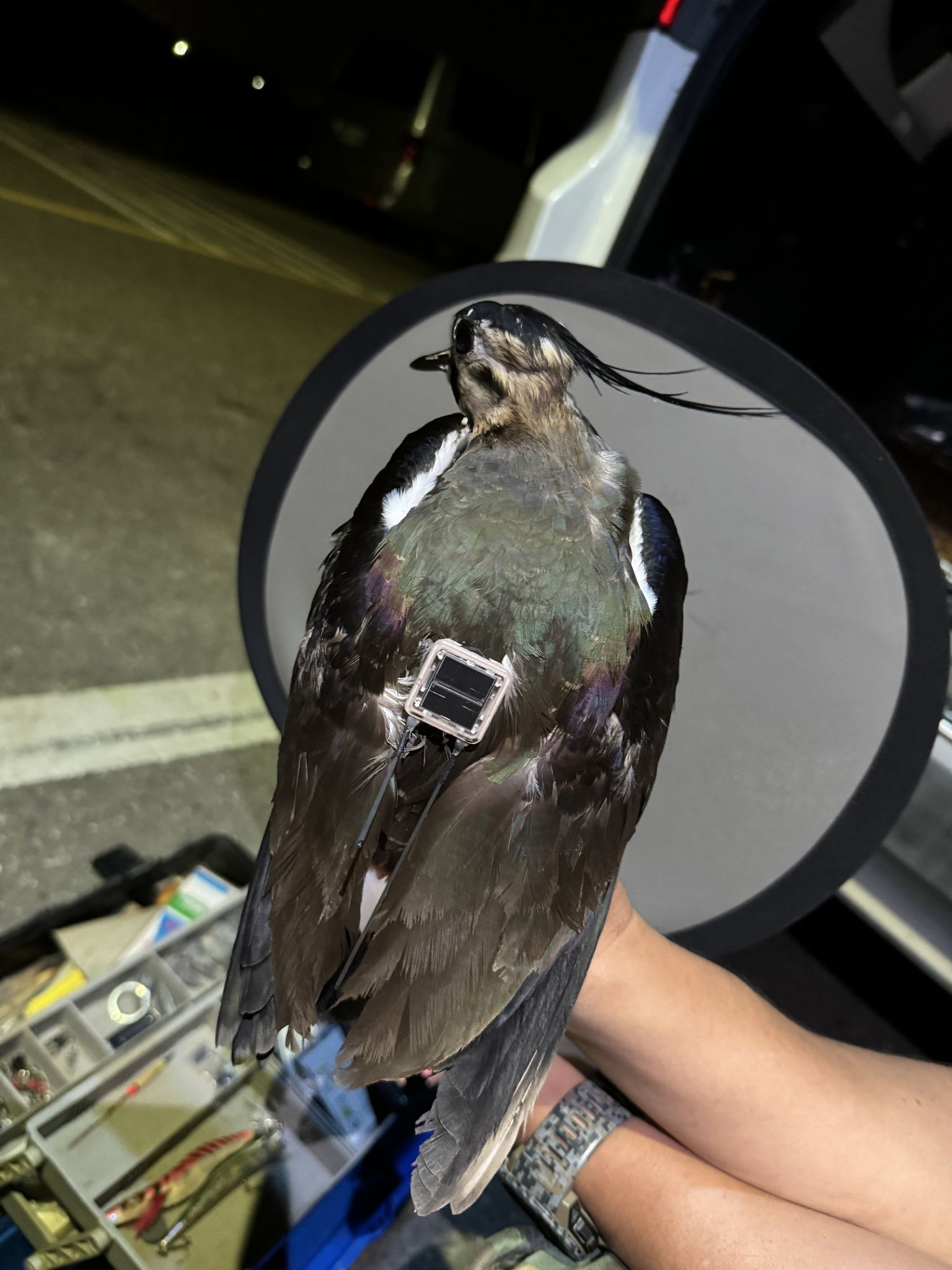
Tagging northern lapwings with leg bands and satellite transmitters (Photo: Chung Han Wu)
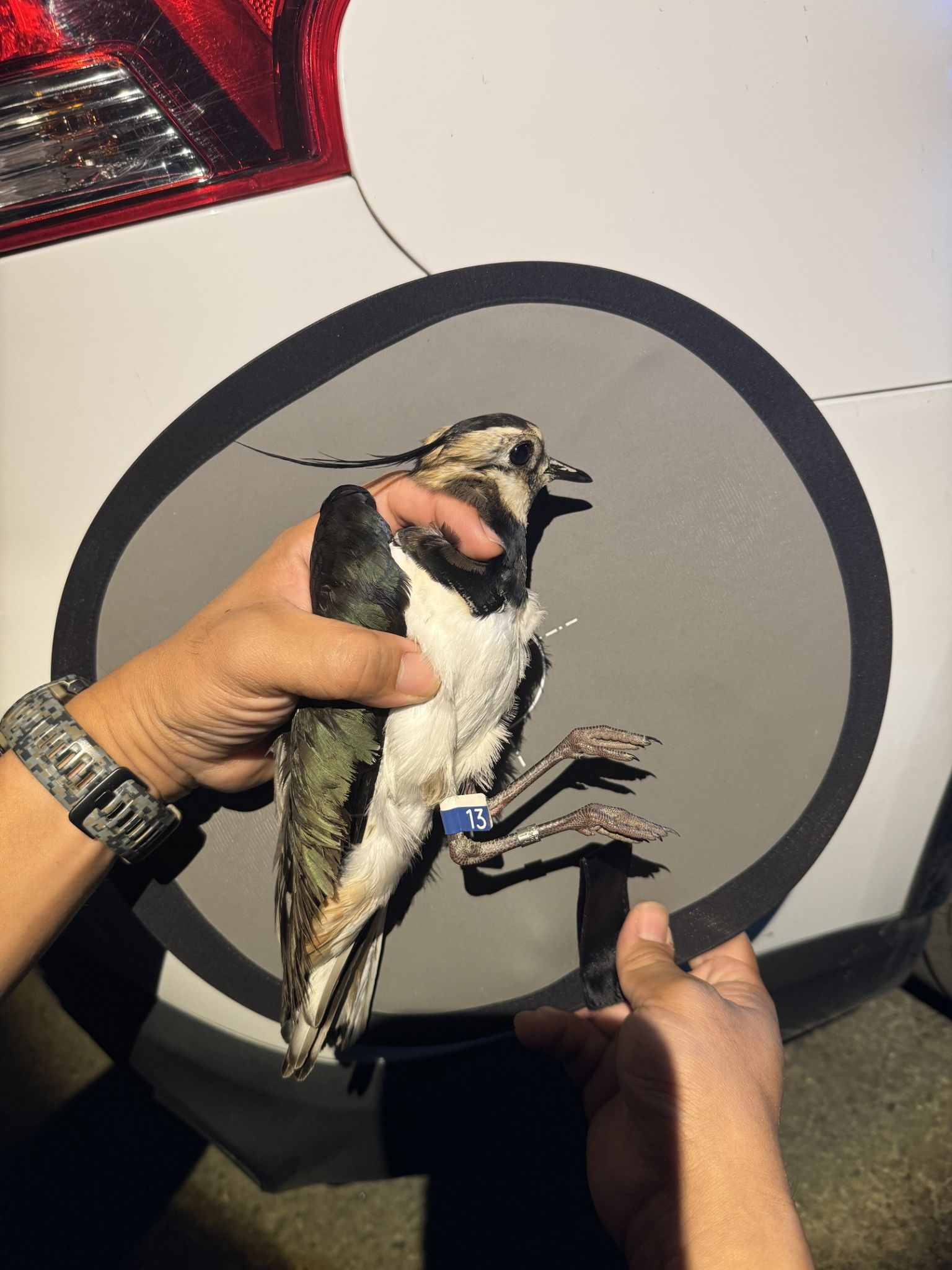
Tagging northern lapwings with leg bands and satellite transmitters (Photo: Chung Han Wu)
Ecological education volunteer activities
The HIWIN Volunteer Group is committed to upholding corporate social sponsibility and has continued to take action to give back to society. In recent years, there has been an increasing focus on ecological issues. As such, we have organized “ecological education” tours, inviting underprivileged children (and their parents) to step outdoors and connect with nature. These educational activities are our way to give back to the community with love and action.
In 2024, HIWIN continued its collaboration with the Golden Bat Eco-Education House in Shuilin Township, Yunlin County. In partnership with local social welfare organizations, the Company provided schoolchildren with opportunities to deepen their understanding of their local culture, ecological environment, and nationally classified vulnerable species. Together, five bat houses were built and donated to the Eco-Education House for installation and monitoring in national forest recreation areas.
In July 2024, HIWIN explored a new site—the Chukou Nature Education Center in Chiayi County—where children learned about the endemic species Candidiopotamon rathbuni (Taiwan freshwater land crab). Through interactive games, they simulated the challenges faced by female land crabs when carrying and releasing their offspring.
In October 2024, HIWIN initiated its first collaboration with the Fazi River Water and Environmental Education Center in Taichung City. The program focused on the endangered Prionailurus bengalensis, with activities emphasizing hands-on conservation practices to help participants understand the rescue and protection efforts for the species. Through these ecological education volunteer activities and interpretive sessions, HIWIN aims to instill in children the ethics, knowledge, attitudes, and values necessary for protecting and improving biodiversity.
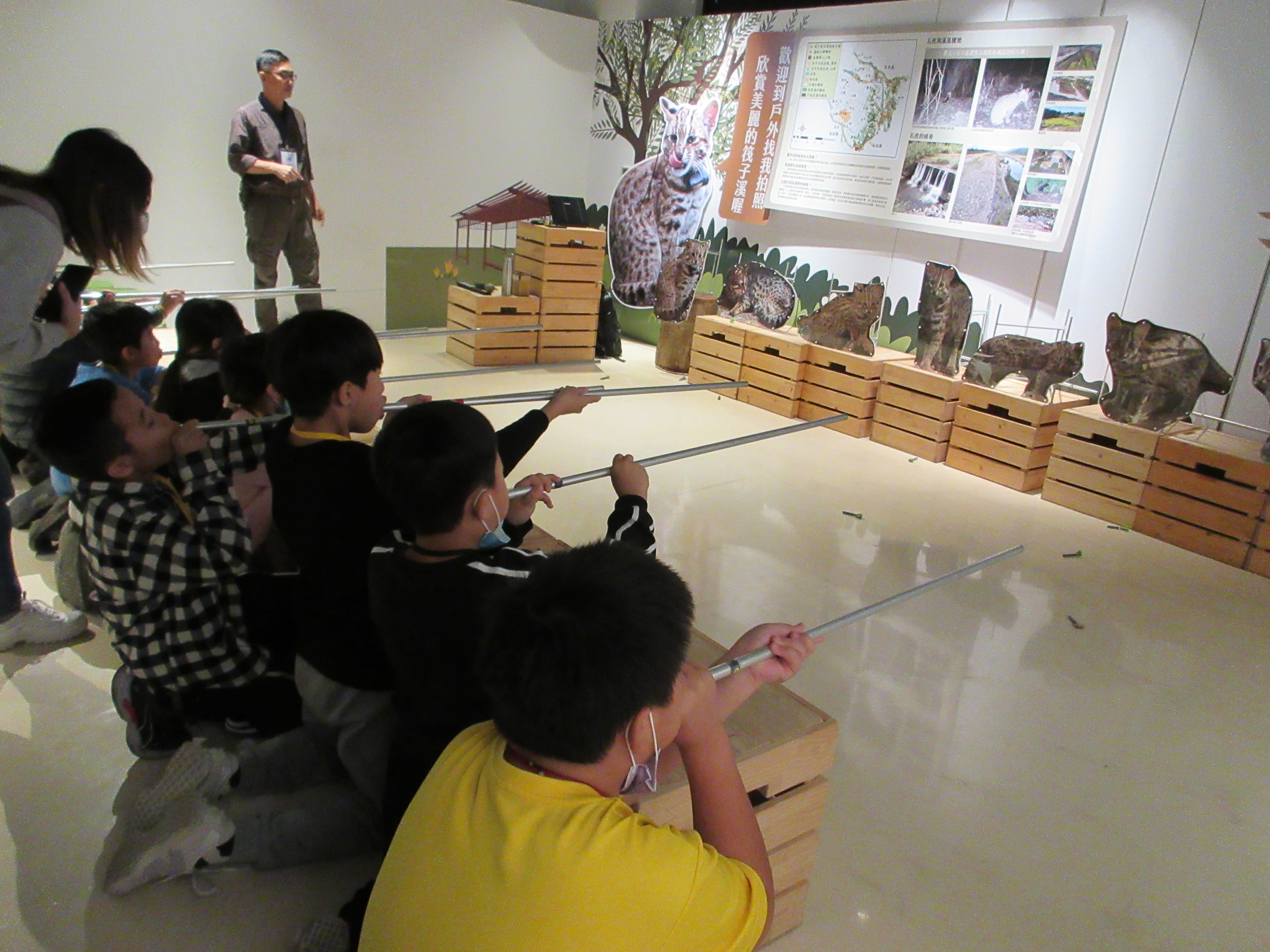
Hands-on experience in Prionailurus Bengalensis rescue and conservation
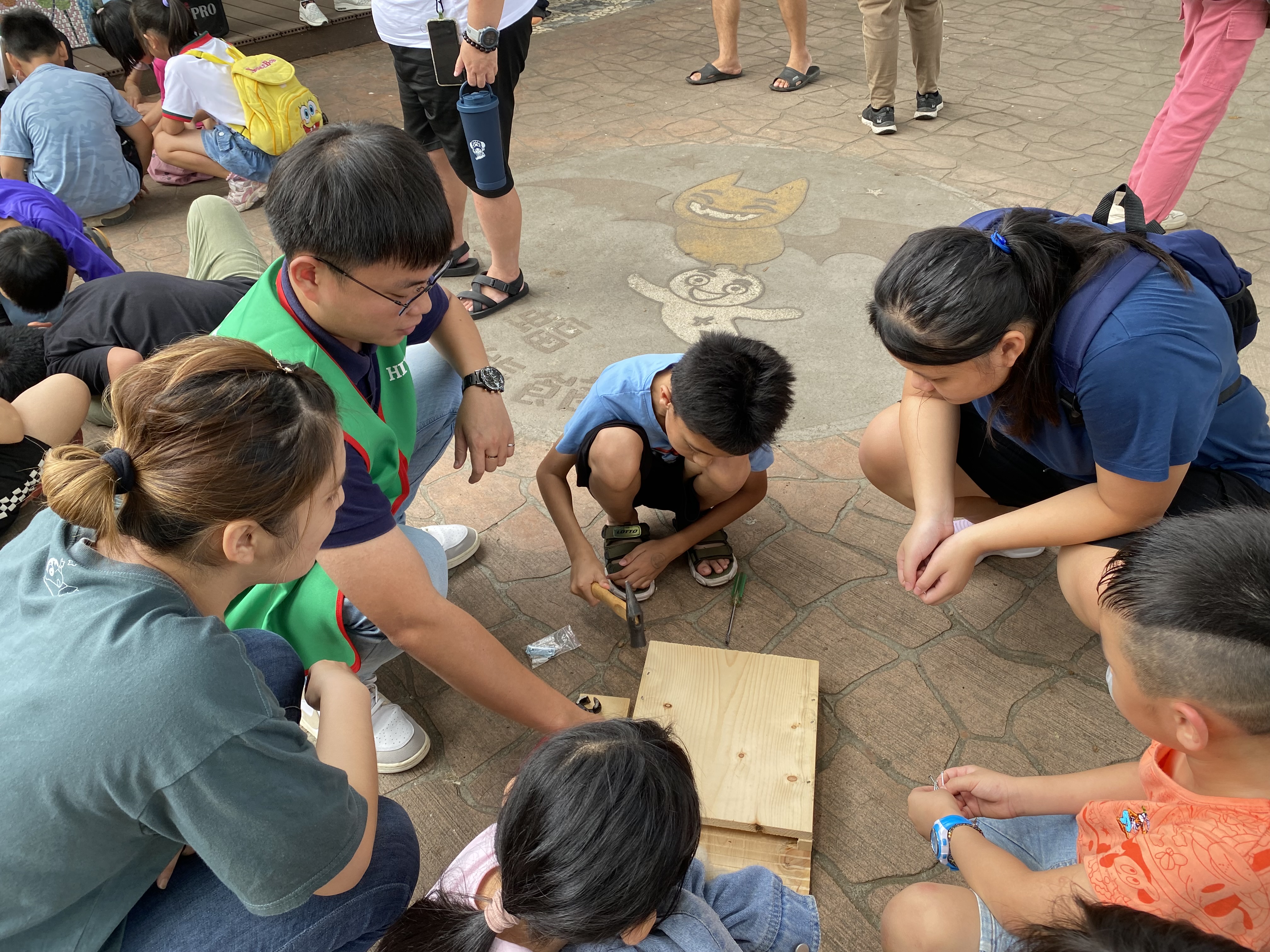
Collaborative construction of bat houses donated to the ecoeducation house
Dadu mountain natural forest restoration initiative
Taiwan’s forests have suffered severe damage due to socioeconomic development, making forest restoration an urgent priority. Beginning in 2024, HIWIN collaborated with the Taiwan Afforestation Association to adopt 200 native saplings in the Dadu Mountain Natural Forest. Utilizing company-owned land, resources, and manpower, HIWIN supports the cultivation of these native tree species to restore the ecological landscape surrounding the plant site.
Two corporate nursery volunteer events were held, with 29 employees and their family members participating as ecological restoration volunteers. Volunteers assisted with nursery maintenance and transplanting work while learning the principle of “planting the right tree in the right place,” which ensures the survival of native forest species and prevents replacement by invasive species. This initiative aims to highlight the importance of Taiwan’s native tree species, foster employees’ environmental awareness, and reinforce HIWIN’s responsibility in promoting forest restoration in Taiwan’s low-elevation mountain areas and biodiversity conservation in urban regions.
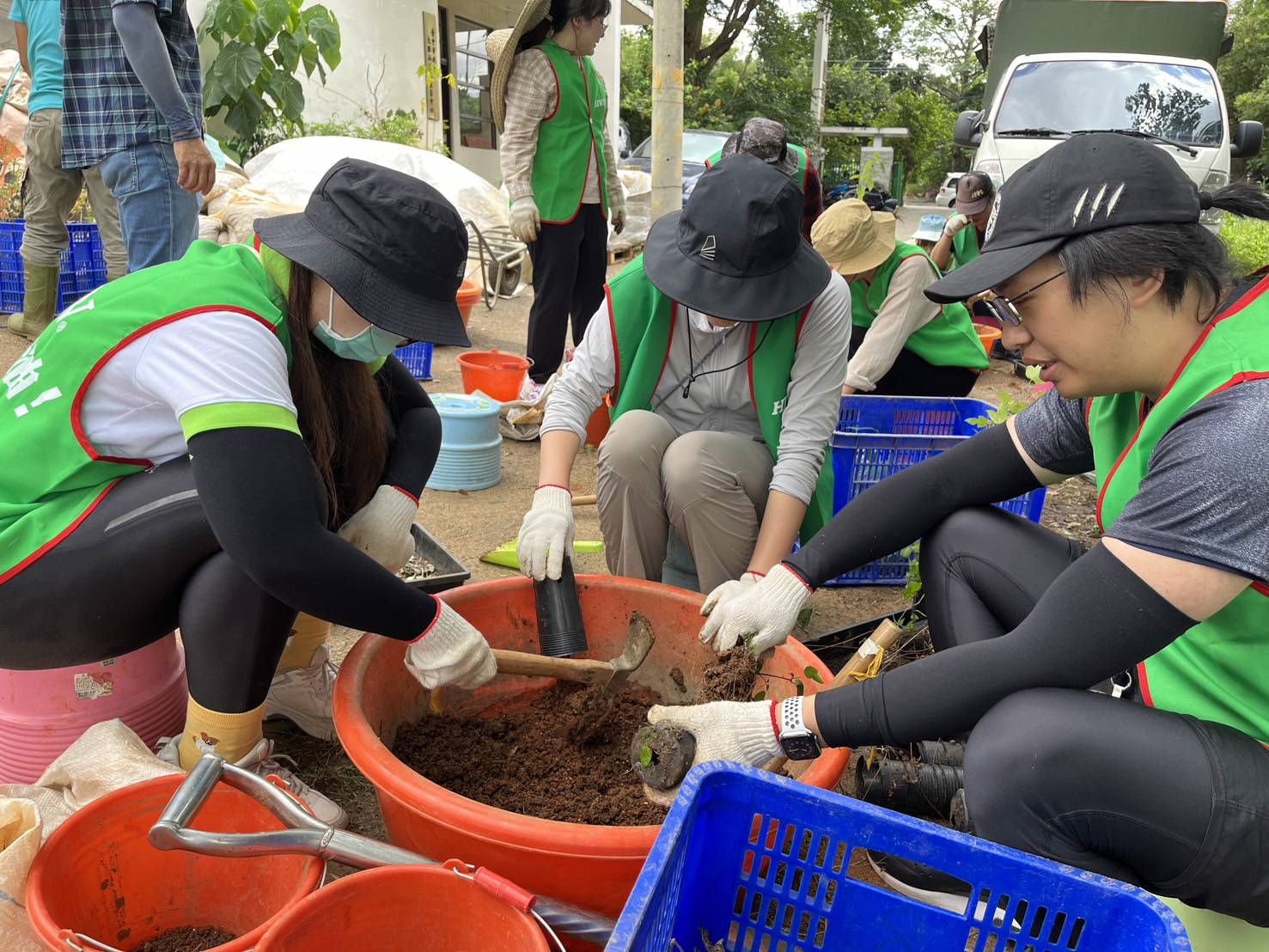
Volunteers assist with transplanting native tree species
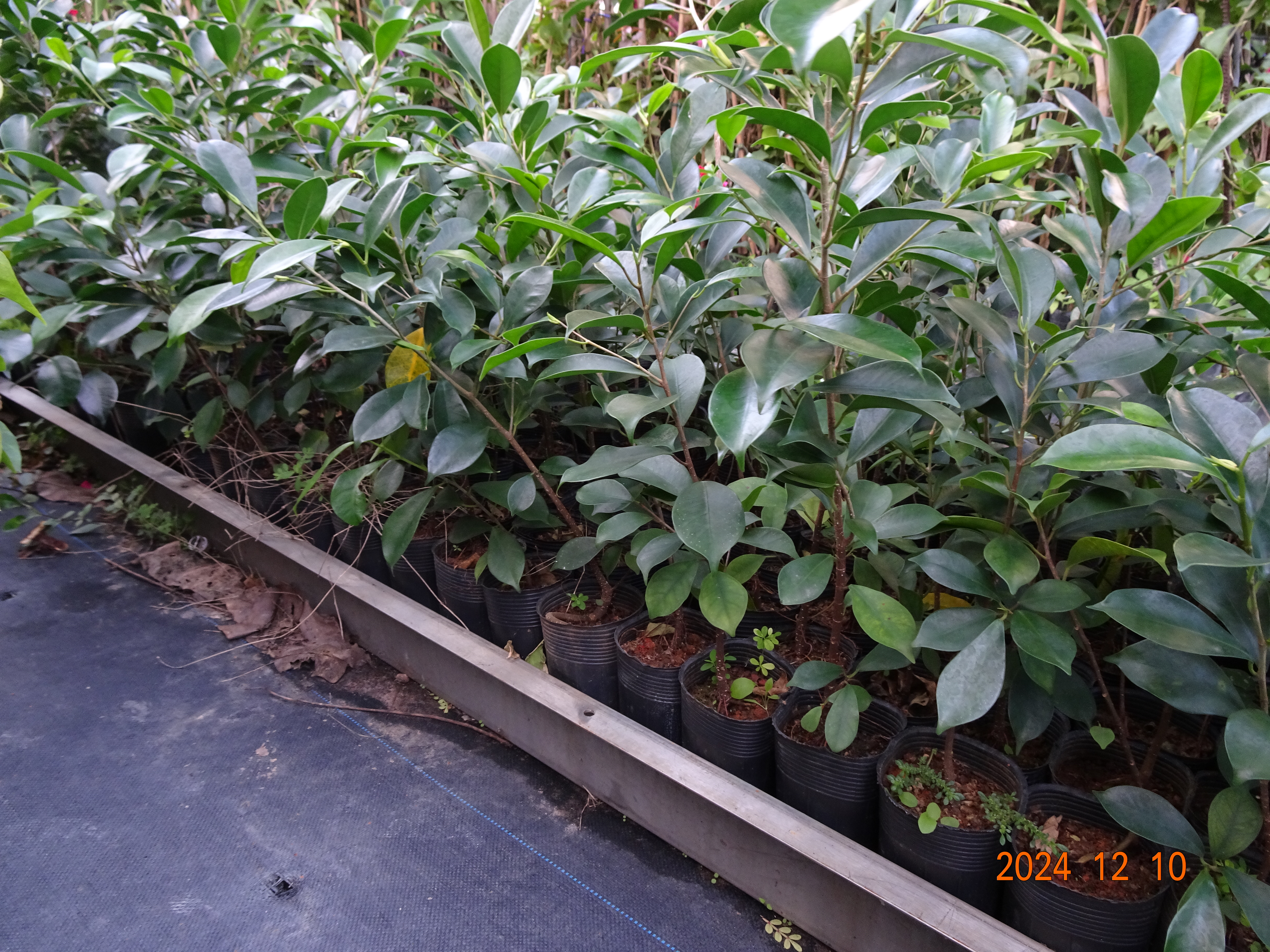
Adopted native saplings are growing steadily
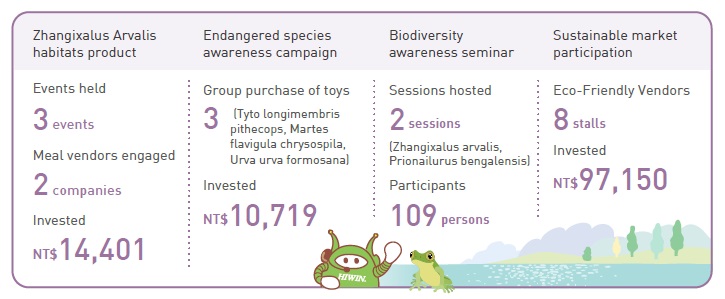
Promoting sustainable consumption
Environmentally friendly agriculture often comes with higher production costs, which are reflected in product prices. To support eco-conscious farming, HIWIN organized sustainable markets and bulk purchase activities, helping to offset the cost borne by farmers for environmental and biodiversity conservation. The company also partnered with the Forestry and Nature Conservation Agency’s “Forest Made” initiative—a forest-friendly consumer brand. Through the use of endearing endangered species plush toys, the initiative captures public attention, showcases the species’ unique features, and provides opportunities for families to learn about Taiwan’s native species while contributing to forest conservation through their purchases.
Additionally, HIWIN conducted biodiversity seminars to raise awareness among employees and their families, encouraging support for certified habitat-friendly agricultural products. Through these efforts, HIWIN seeks to contribute to the protection of satoyama habitats and promote sustainable consumption models that benefit Taiwan’s lowland wildlife.
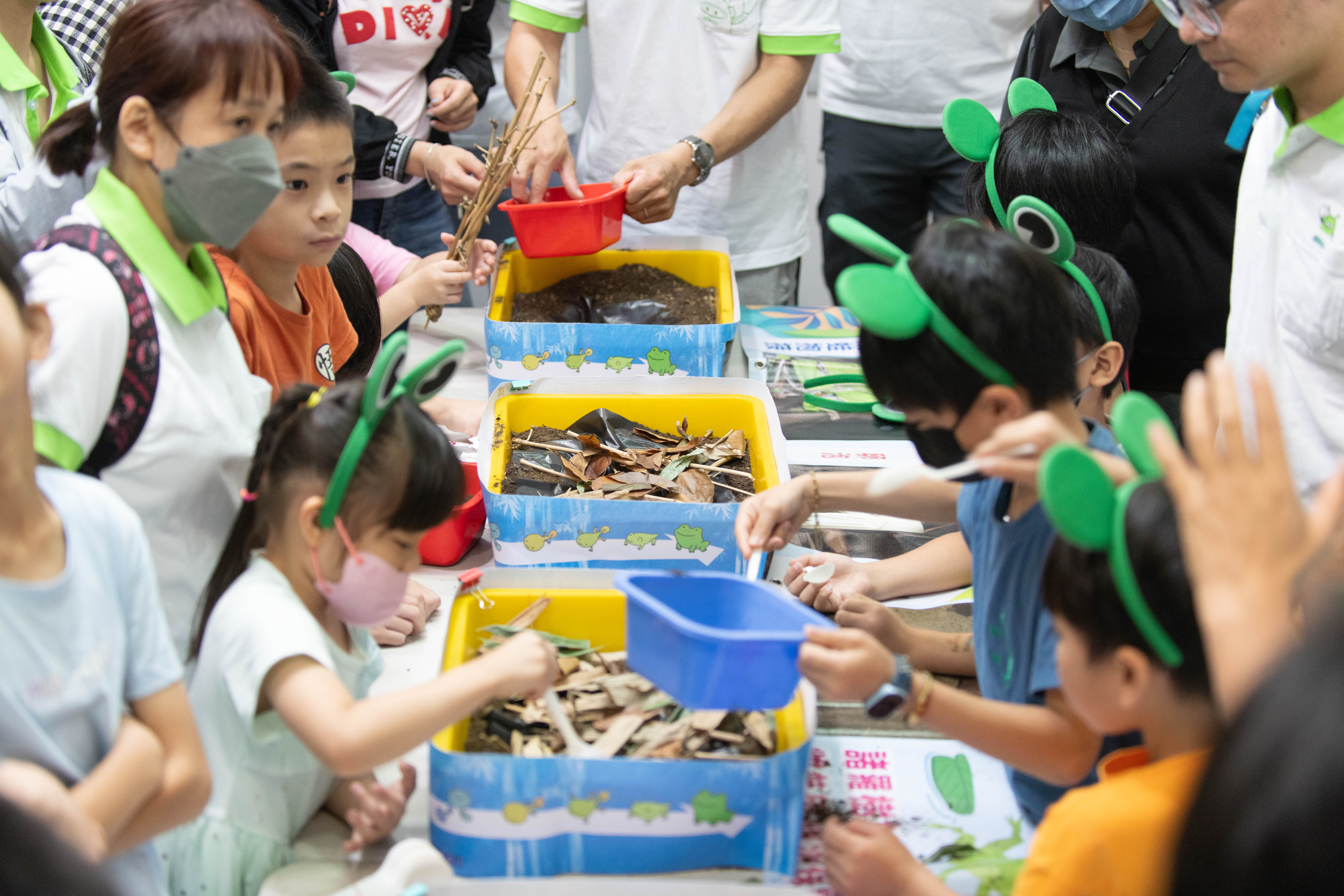
Employees and families participate in habitat restoration workshops focused on Zhangixalus arvalis
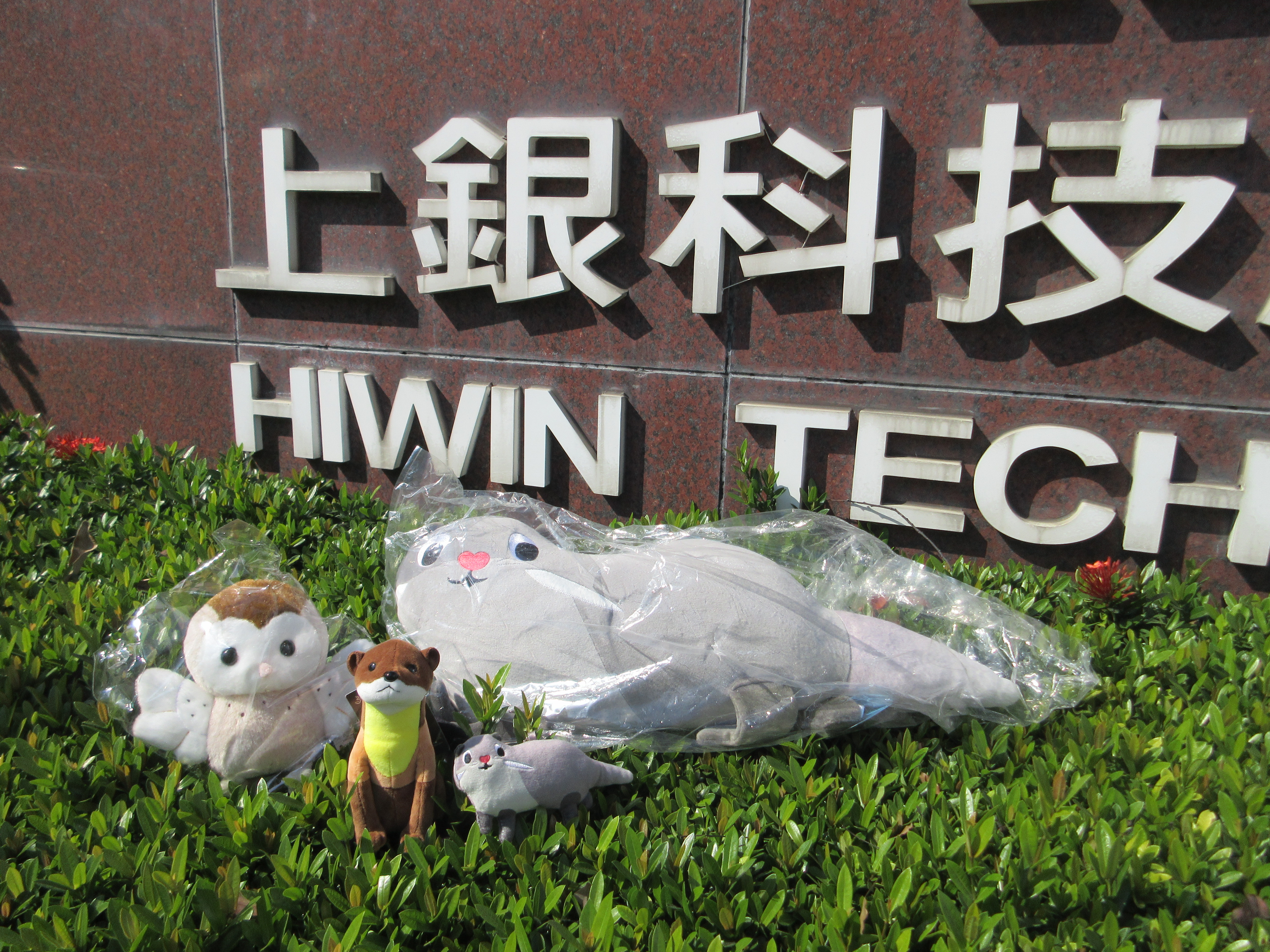
Purchases of forest animalthemed products help fund forest conservation efforts